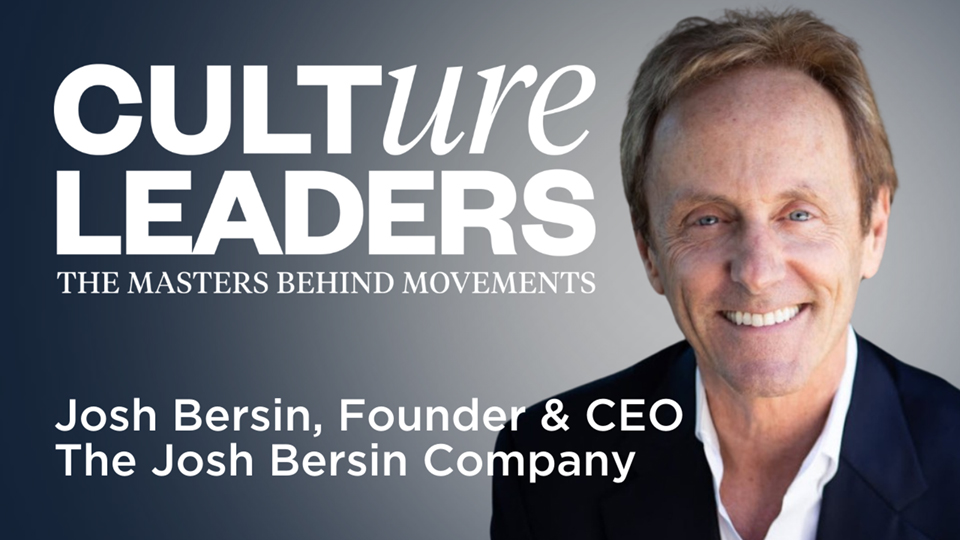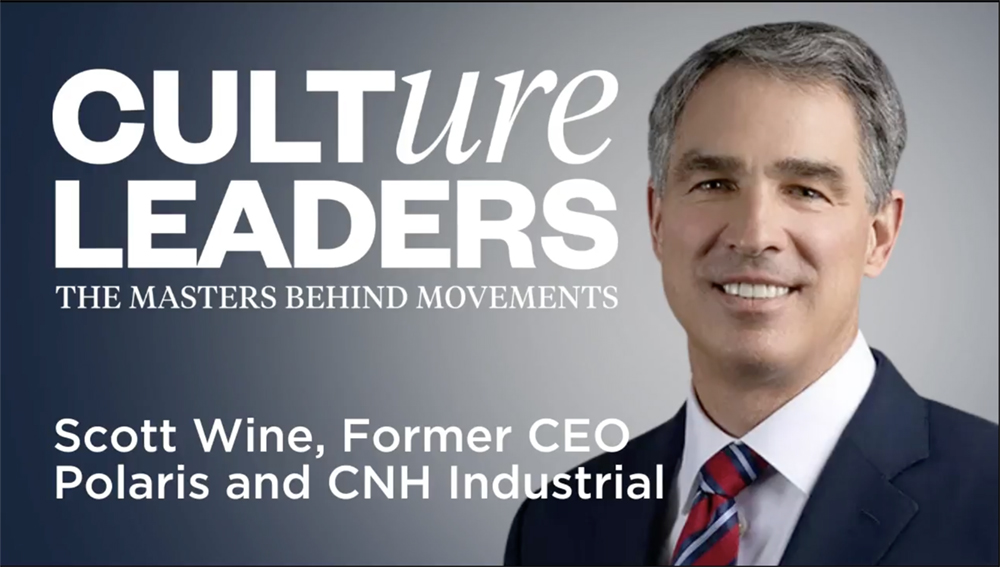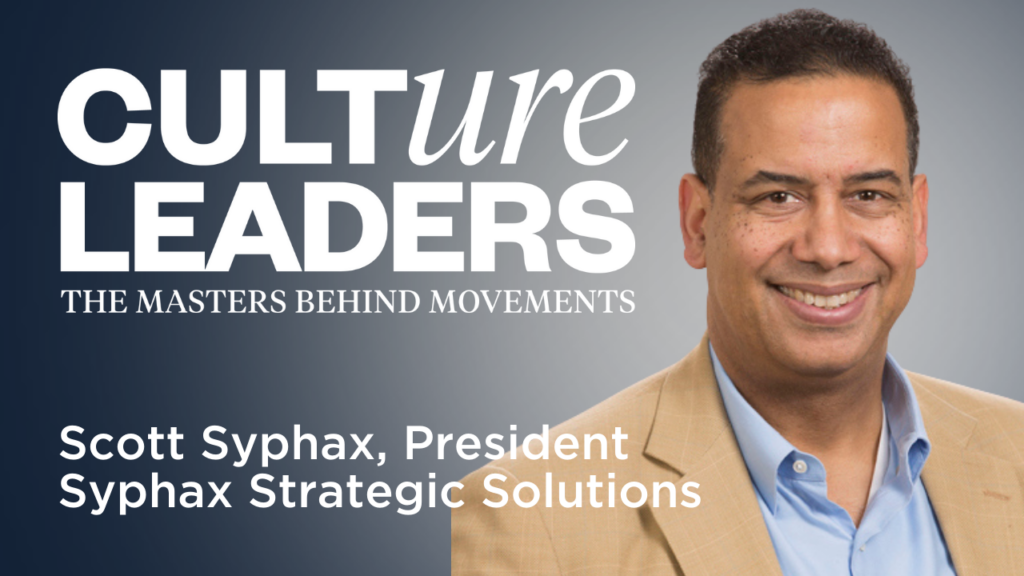Steve Pruett, Executive Chairman of Cox Media Group, shares his remarkable journey from a humble upbringing to leading one of the largest media organizations in the United States. With insights drawn from his book The Gain Principle, Steve reflects on personal and professional growth, the power of radical inclusion, and the hard-won lessons from navigating corporate culture. He also opens up about the profound impact of losing his two sons and how their legacy continues to inspire his work and life.
This conversation delves into the moments that shaped Steve’s leadership style, his perspective on authenticity in corporate America, and his drive to “make things happen.”
What Is Your Why?
Steve shares how his purpose evolved from a relentless drive to “make things happen” into a mission to lift the veil for others, offering insight into leadership dynamics and decision-making processes.
Radical Inclusion and Corporate Transparency
Steve discusses his early belief in radical inclusion, its successes, and challenges, particularly within the confines of corporate America.
The Gain Principle: A Framework for Growth
Steve explains his four-part growth cycle—Go, Assess, Identify, and Next—and how this structured approach has guided his personal and professional life.
Leadership Lessons from Life and Loss
Steve reflects on the life lessons his late sons taught him, his journey through grief, and how their influence continues to shape his leadership and legacy.
Navigating Corporate Culture and Transparency
From his experience leading through economic downturns and mergers, Steve emphasizes the importance of including employees in decision-making processes and maintaining transparency.
Building Purpose and Resilience
Steve shares actionable strategies for personal and organizational growth, from leveraging AI and technology to making bold, purpose-driven decisions in life and work.
Acknowledging the Past to Build the Future
Steve shares how his upbringing with entrepreneurial grandparents and union-worker parents shaped his work ethic and leadership philosophy.
The Future of Work and Leadership
From navigating industry headwinds to empowering employees, Steve discusses his vision for creating sustainable and inclusive workplaces.
About Steve Pruett
Steve Pruett is the Executive Chairman of Cox Media Group, leading a portfolio of radio and television stations across the United States. With decades of experience in media and corporate leadership, Steve is known for his forward-thinking approach and people-first leadership style. His book The Gain Principleoutlines his framework for personal and professional growth, offering insights for individuals at every stage of their careers.
LinkedIn: https://www.linkedin.com/in/stevenjpruett/
Cox Media Group: www.coxmediagroup.com
Jessica Kriegel:
Website: https://www.jessicakriegel.com/
LinkedIn – https://www.linkedin.com/in/jessicakriegel
Instagram: https://www.instagram.com/jess_kriegel/
Culture Partners:
Website: https://culturepartners.com/
LinkedIn: https://www.linkedin.com/company/culturepartners/
TRANSCRIPT
Dr. Jessica Kriegel: In today’s episode, we get to meet Steve Pruitt, who is the Executive Chairman of Cox Media Group, a media organization with radio and TV stations across various markets, providing news and entertainment to the American people. Steve’s story is incredible. He has had a remarkable career, starting from humble beginnings on the farm, working side by side with his 4-foot-10, 100-pound force-of-nature grandmother who ran the homestead, to becoming the Executive Chairman at a major media organization and planning for his next growth cycle.
We talk about his book, The Gain Principle, which explores growth cycles in personal and professional life, and the lessons he’s learned. He shares his insights on growth and how to pass those learnings on to the next generation. I loved this conversation with Steve. We went down so many rabbit holes, but stick with it because it’s inspiring. He talks about what he’s learned along the way, what he wishes he’d learned sooner, the experience of losing his two sons, and what that did for his own growth and resilience. It was just such a powerful conversation, and I’m so grateful to Steve for having it with me. So take a listen—this is a good one.
Dr. Jessica Kriegel: So, Steve, what is your why?
Steve Pruitt: I’ve thought about that a lot over the years. People often ask me, and the best I can come up with is that, from the earliest days, I just wanted to make things happen. Growing up on a farm with blue-collar parents, that drive to make something happen became my why. It shaped everything I did, even though sometimes making things happen led to volatility or short-lived jobs.
Over the years, I’ve realized that my why has evolved. These days, it’s about giving people visibility into the how. I’ve talked to many people, from those in mid- to late-career transitions to young people starting out, who ask, “How do I advance? How do I make things happen?” I try to lift the veil on what their bosses, their bosses’ bosses, and even their board are likely thinking. Early in my career, I had this natural bent toward radical inclusiveness—I just told everyone everything.
When I started building companies, I took the same approach. If we needed to raise money, I told the team, “We need to raise money. We need to break even. We need to pay our debt.” I didn’t know any other way. But when I transitioned to corporate life after 20 years as a founder, I learned a lot about corporate behavior—and the dangers of radical transparency in that environment.
Dr. Jessica Kriegel: On the dangers of radical transparency in corporate America.
Steve Pruitt: Exactly. It’s not always welcome.
Dr. Jessica Kriegel: I’ve heard you describe your wife as being very savvy and holding her cards close to her chest, whereas you’ve been very open. Did you learn from her how to be more guarded?
Steve Pruitt: To some degree, yes. My high school English teacher once wrote in my yearbook, “You’re incredibly brilliant and talented, but you leave yourself wide open.” That stuck with me, though I didn’t fully understand it at the time. My wife, on the other hand, grew up in a family where they were naturally more guarded—not closed off, but thoughtful about what they shared. I’ve learned to adopt some of that mindset, though openness remains my default.
Dr. Jessica Kriegel: I think there’s a tension between authenticity and the necessity of being guarded in corporate politics. There’s often an unspoken culture of silence around certain topics, like layoffs. If you’re in the inner circle, you’re expected to keep it secret until the moment it’s announced, which creates this feeling of betrayal among employees. Do you think CEOs today are too guarded, or is there room for more openness?
Steve Pruitt: That’s a tough question. On one hand, there’s HR-mandated guardedness—you can’t just announce everything. On the other hand, there’s the psychology of the organization. I’ve been through major layoffs, recessions, and even bankruptcies, where secrecy was critical at first, but transparency became necessary later. I think there’s value in being open about the why and the how, but it has to be balanced.
Dr. Jessica Kriegel: When you’ve been transparent with employees about tough decisions, how have they reacted?
Steve Pruitt: They’ve appreciated it. I remember a town hall where I explained budget cuts by saying, “The industry is facing headwinds. Our job as senior management is to create a sustainable company that can pay its debts and provide returns to investors.” The honesty resonated with people—they said, “Now we understand.”
Dr. Jessica Kriegel: It’s about respecting employees’ intelligence and emotional capacity to handle the truth.
Steve Pruitt: Exactly. I believe employees can handle more truth than we often give them credit for.
Dr. Jessica Kriegel: It’s about respecting employees’ intelligence and emotional capacity to handle the truth.
Steve Pruitt: Exactly. I believe employees can handle more truth than we often give them credit for. When you bring them into the conversation and say, “Look, here’s what’s going on, and we need your advice,” they usually respond with solutions rather than fear. Of course, there’s always the risk that someone will react badly, but more often than not, you’ll get constructive input.
Dr. Jessica Kriegel: It’s like assuming employees don’t have the intelligence or emotional capacity to handle the truth. That’s such a missed opportunity for collaboration and trust-building.
Steve Pruitt: That’s exactly right. I’ve had moments where employees came to me after a town hall or meeting and said, “Thank you for explaining what’s happening. We thought you were just trying to sugarcoat things.” The truth matters, and people appreciate being brought into the process. It makes them feel like they’re part of the solution.
Dr. Jessica Kriegel: Speaking of your leadership philosophy, I want to talk about your book, The Gain Principle. You write about growth cycles—go, assess, identify, and next. Can you break that down for us?
Steve Pruitt: Sure. Over my career, I’ve noticed these clear six- to seven-year cycles where my focus or direction would shift. The first phase is go. That’s when you dive headfirst into something new with energy and enthusiasm. You’re on fire, building the plane while flying it. Then comes assess, where you evaluate: Is this working? Do I enjoy this? Is it what I thought it would be?
After that, there’s identify. That’s when you start to recognize what’s next—what’s pulling you forward, what you want to pursue. And finally, there’s next, where you begin planning and moving into the next phase. For me, these cycles were roughly six to seven years long, but there are often smaller cycles within the larger ones.
Dr. Jessica Kriegel: I can relate to that. I sold my business to Culture Partners about two and a half years ago, and I feel like I’m in the assess phase right now—figuring out what’s working, what’s next.
Steve Pruitt: Exactly. When you’re in the go phase, you’re laser-focused, and everything else fades into the background. But the assess phase is critical because it allows you to pause and really think about whether you’re on the right path. It’s a reflective time, and it often sets the stage for your next big move.
Dr. Jessica Kriegel: What’s the difference, in your view, between an employee mindset and a businessperson mindset? You touch on this in your book.
Steve Pruitt: The key difference is accountability. An employee mindset often focuses on asking, “What do I need to do my job?” A businessperson mindset asks, “What can I do to move the whole enterprise forward?” It’s about seeing the bigger picture, taking initiative, and finding ways to create value beyond your immediate responsibilities. It’s not just about doing your job—it’s about making things happen.
Dr. Jessica Kriegel: That accountability piece is huge. It’s about choosing to focus on what you can control to drive results instead of saying, “I’m stuck; someone fix this for me.”
Steve Pruitt: Exactly. It’s about ownership—taking responsibility for outcomes, not just tasks. When you go to your boss with a solution instead of a problem, you’re already shifting into that businessperson mindset.
Dr. Jessica Kriegel: Let’s pivot for a moment. I want to acknowledge your sons. You write about them in the book, and I watched a Peachcake video this morning. You’ve experienced such profound loss. Can you share how that has shaped you?
Steve Pruitt: That’s a tough one. My son Stefan was incredibly creative—a pure artist. He was born with a heart condition and had multiple surgeries, but he never let it hold him back. He created music, performed, and lived with such passion. Alex, my other son, was more mechanical. He was a race car driver and could build or fix anything. They were so different but equally driven.
Losing them was devastating. Stefan passed away during COVID after a heart event. Alex passed years earlier. It’s hard to describe what that kind of loss does to you, but I find purpose in honoring them. I think about what they would want for me, and I know they wouldn’t want me to give up. That keeps me going.
Dr. Jessica Kriegel: I can’t imagine that kind of loss. It’s inspiring to hear how you’ve found purpose in their memory.
Steve Pruitt: It’s a daily process. I often say that denial is part of how I cope. I imagine them as being out there, alive, doing something amazing, even though I can’t reach them. That thought brings me some comfort. But it’s hard—there are things I still can’t do, like going to places where Alex raced. I’ve started to inch back into those spaces, but it’s a slow journey.
Dr. Jessica Kriegel: Thank you for sharing that. It’s such a vulnerable and powerful part of your story. Let’s talk about the acknowledgments in your book. You wrote something that really struck me: “I want to thank all the people who resisted or opposed my ideas, the ones who undermined my plans, those who stabbed me in the back and in the face. Without you, I never would’ve gained the survival tools to succeed.” That’s such a mic-drop moment.
Steve Pruitt: Writing those acknowledgments was an interesting process. I realized I couldn’t name everyone who helped me along the way, so I thought, “Why not thank the people who challenged me?” They taught me resilience and how to navigate difficult situations. That’s been invaluable.
Dr. Jessica Kriegel: It’s a brilliant way to end the book. Speaking of endings, when does the book come out?
Steve Pruitt: January. I’m excited but also nervous—it’s a deeply personal project.
Dr. Jessica Kriegel: You should be proud. It’s inspiring, insightful, and so well-written. Thank you for taking the time to share your story with us today. I’ve learned so much from this conversation.
Steve Pruitt: Thank you, Jessica. It’s been a pleasure. I appreciate your thoughtful questions and the opportunity to share.
Dr. Jessica Kriegel: Likewise. Thank you, Steve.




